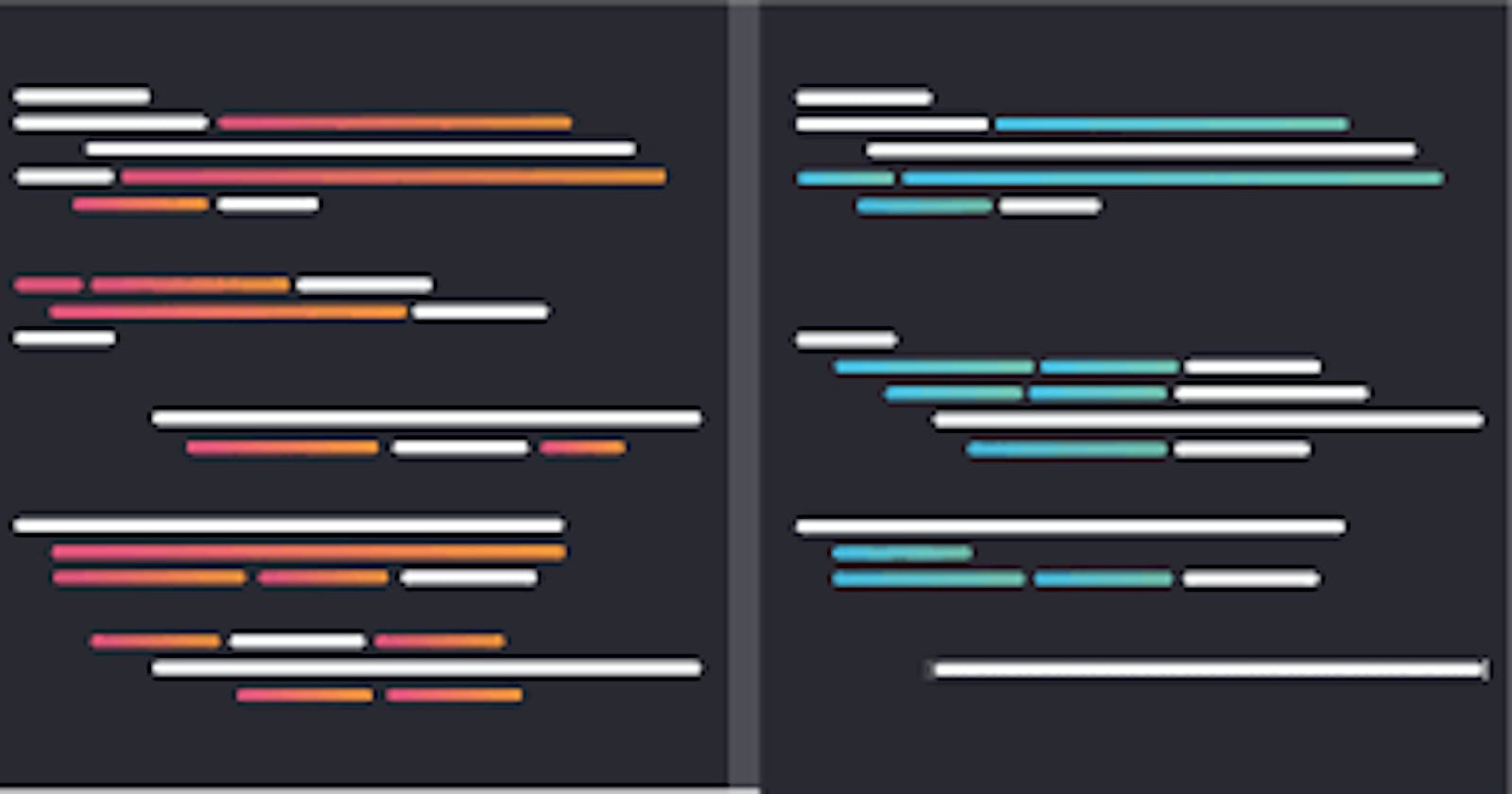Brief History
A year ago I built an e-commerce API with Flask and consumed it with React on the frontend. It was the first time I built a web app like that where the frontend and backend were very separate because before I would use templating engines like Jinja for Flask and Handlebars for Express. Those were the times when I just started programming, I was so full of energy and very ignorant sometimes. I remember seeing a meme or statement like this:
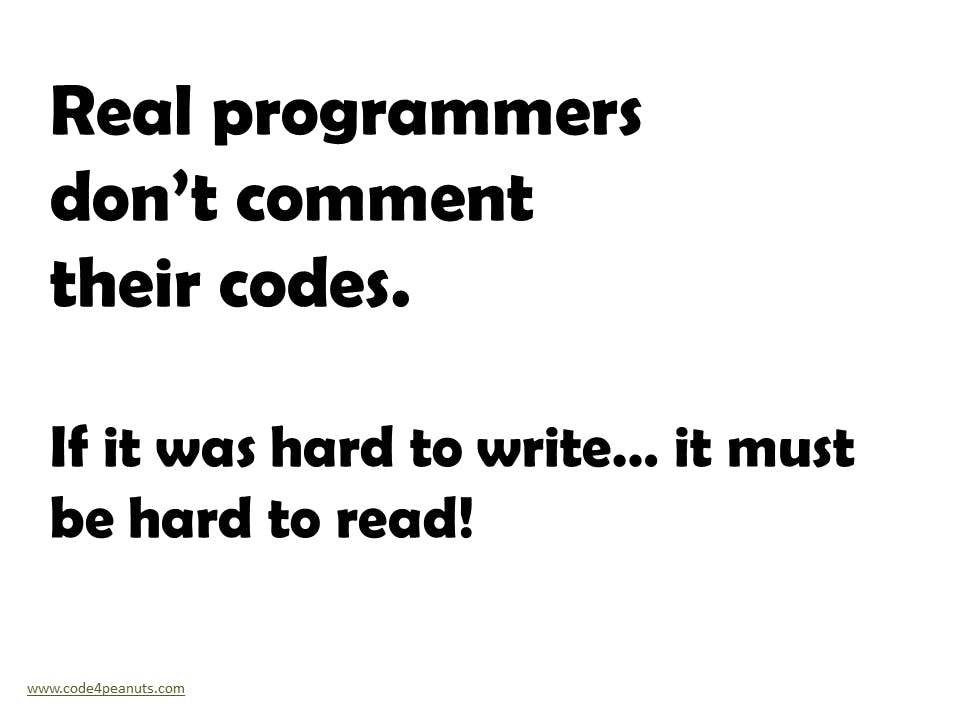
Back then I used to follow this statement to the core. If someone had asked me later then what a specific line of code did then I would totally utter out the logic in an instance, as the code was still fresh and flowing through my brain cell networks.
Aftermath
Later about 8 months I started to gain interest in building APIs with express so the first thing I did was well try to build a similar e-commerce API with express and not Flask. I opened two editors side by side. One with Flask the other an empty express API. The idea behind this was to sharpen my express API skills, if I can translate a Flask API to express then I am golden.
An hour through the Flask API code, I was like what kind of sorcery is this:

So I took a break, and then I thought I probably wrote something about these endpoints on Postman. This was definitely the expression I had on my face:

I used to save a Postman collection with just plain endpoints nothing to say what they do or need. I did not know which endpoints needed authentication and going through the Flask API was a mess, from variable names to class names. There was a variable I named c What was I doing? I quickly closed the Flask API editor and Postman.

I never opened the API again and the reason was due to lack of documentation.
How can you document your code?
It's actually simple, you can document your code in various ways:
Write comments: I definitely changed my mantra from Real Programmers do not comment their code to A quick description won't hurt. Commenting your code will not only make your development faster and easier but will also keep the logic of the code fresh in your mind.
// @route: Gets all profiles route.get("/profiles", (req, res, next) => { // ... }Descriptive variable, function and class names: If you ever name anything in your code make it descriptive, even if you lack a comment the name might still give you an idea of what is going on
let c; // ❌This is wrong as we don't know what is c. Is it the cart, checkout let cart; // ✅Now this is more descriptive const fetchData = () => {} // ❌ This function name does not say anything at all const fetchProfileData = () => {} // ✅ This function here tells as that this method fetches profile dataDocument your API: If you have an API and maybe you are using a tool like
PostmanorInsomniato test our your endpoints, giving it descriptive documentation might not hurt you in any way.How to document your code with Postman
Always create a collection to house all your API endpoints
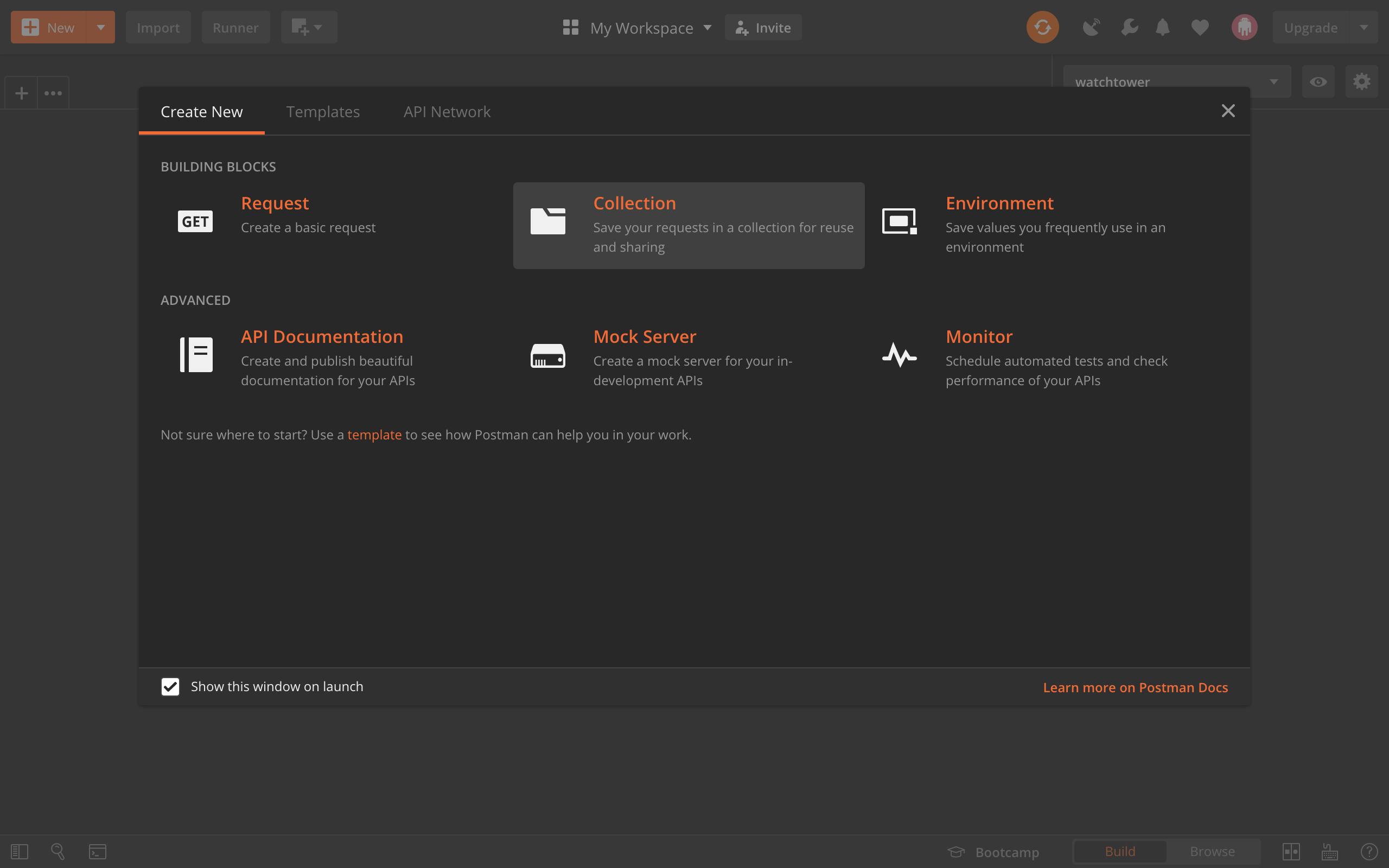
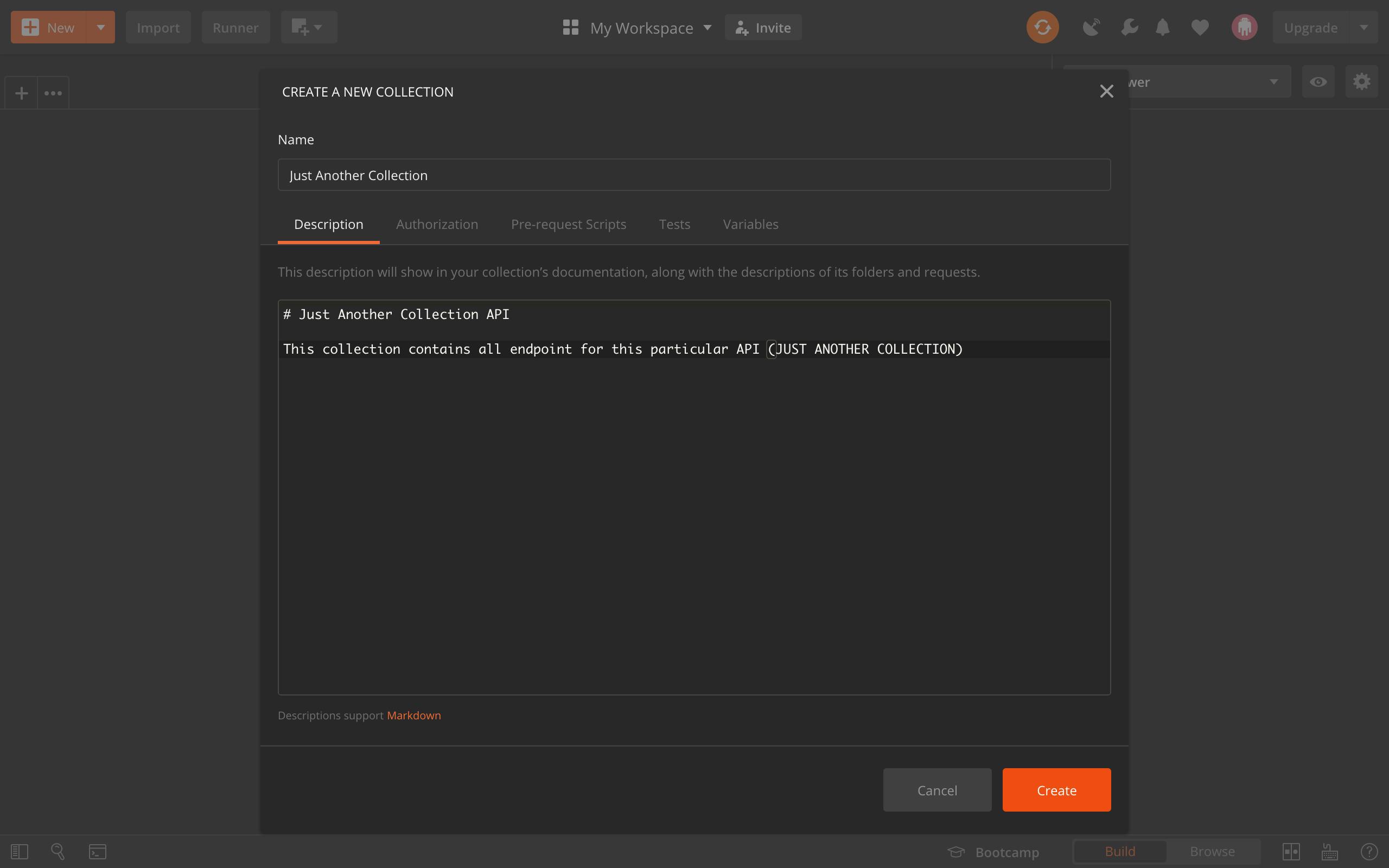

Always document each request you add to your collection
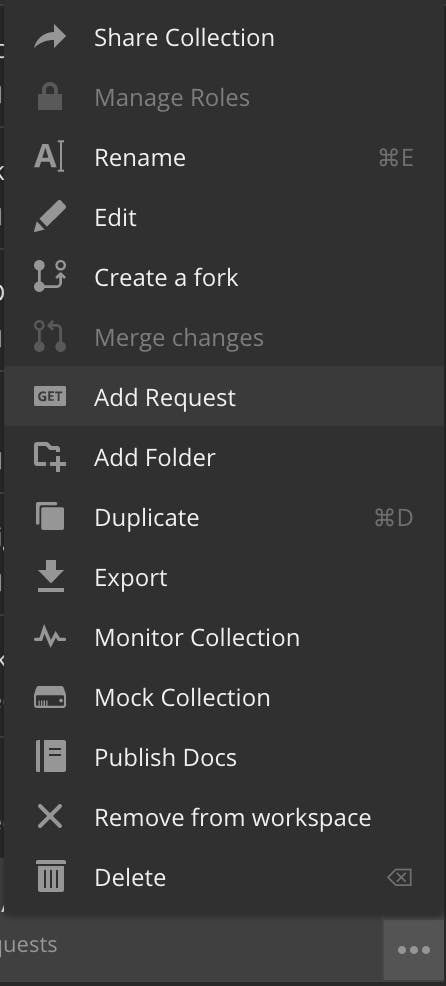
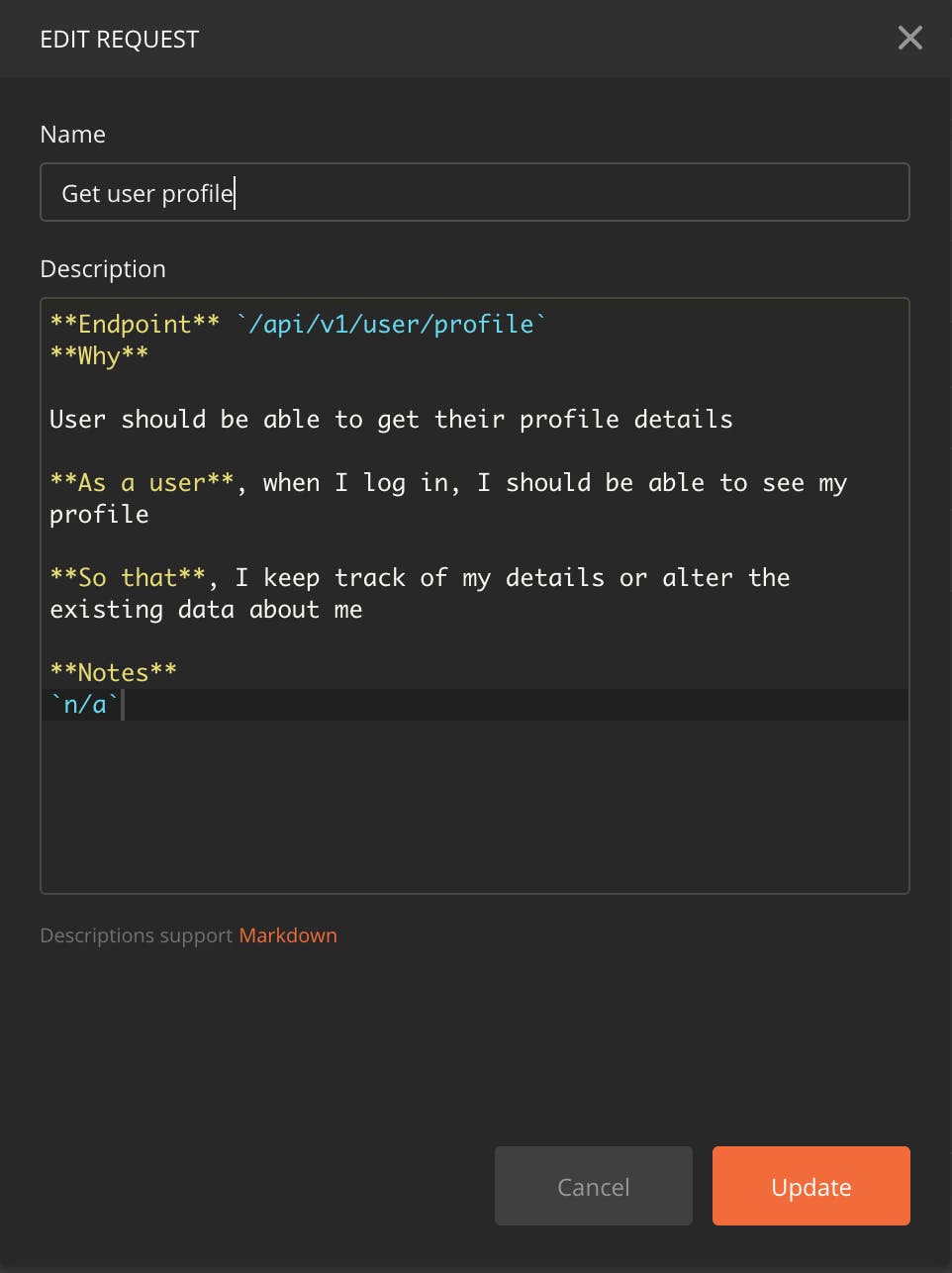
Advantages of Documenting your code
- Faster Development: Documenting your code and API endpoint will save you a ton of time to work on updates, populate and fix bugs easily and also allow you to meet your girlfriend or boyfriend or chill with the family😁.
- Easier collaboration: Let's say you open source your project and you want the developer community to help you in building and shipping your project, you do not want to scare them off with unreadable code.
Get feedback fast: If you use a tool like Postman you can share your documentation online so that people can test it out and give you feedback instantly.
How to share Postman documentation
- You have to first sign up/sign in to postman on your computer
- Visit their official website, sign in
Click on your workspace
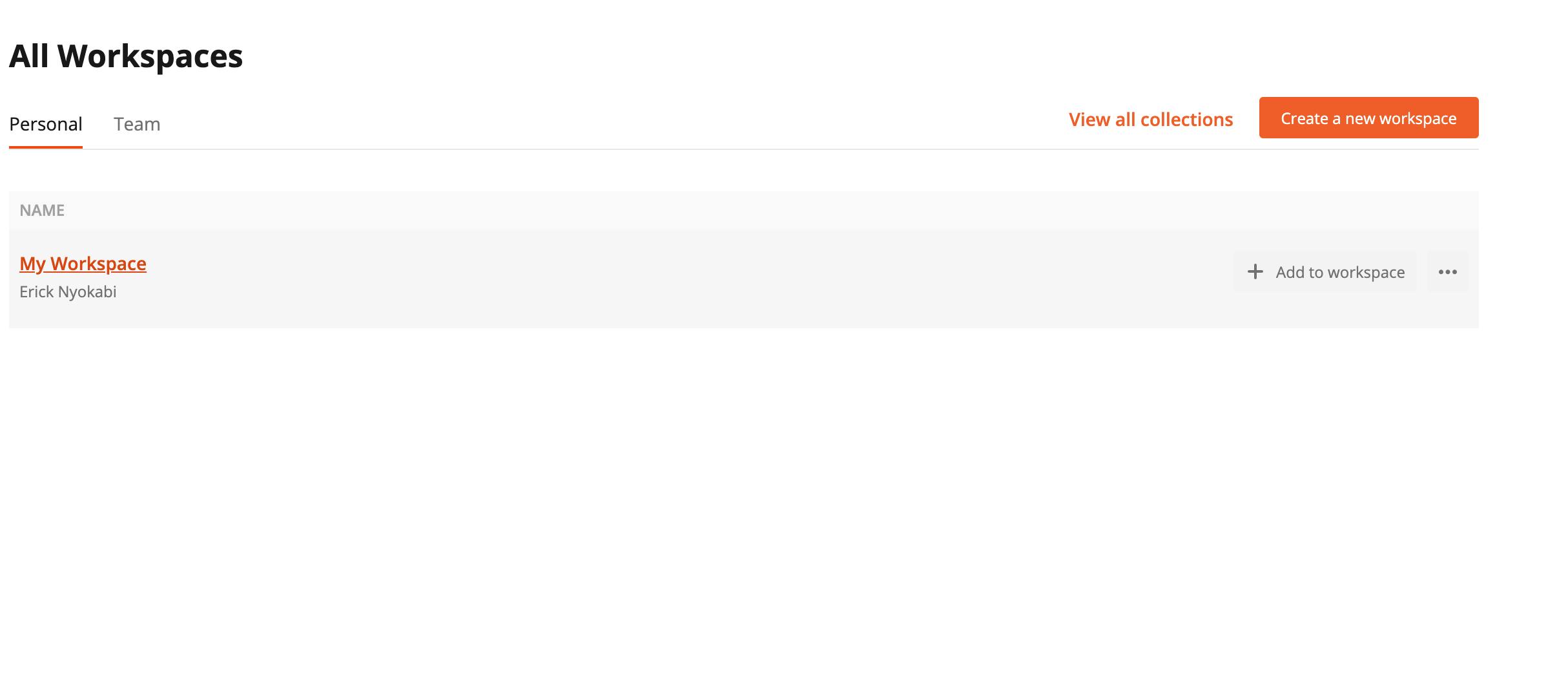
- Click on the collections tabs

- Click on your collection, and if you might notice there is a collection description which explains what it contains.

- You will be redirected to a page with all your endpoints where you can test out your functionality.
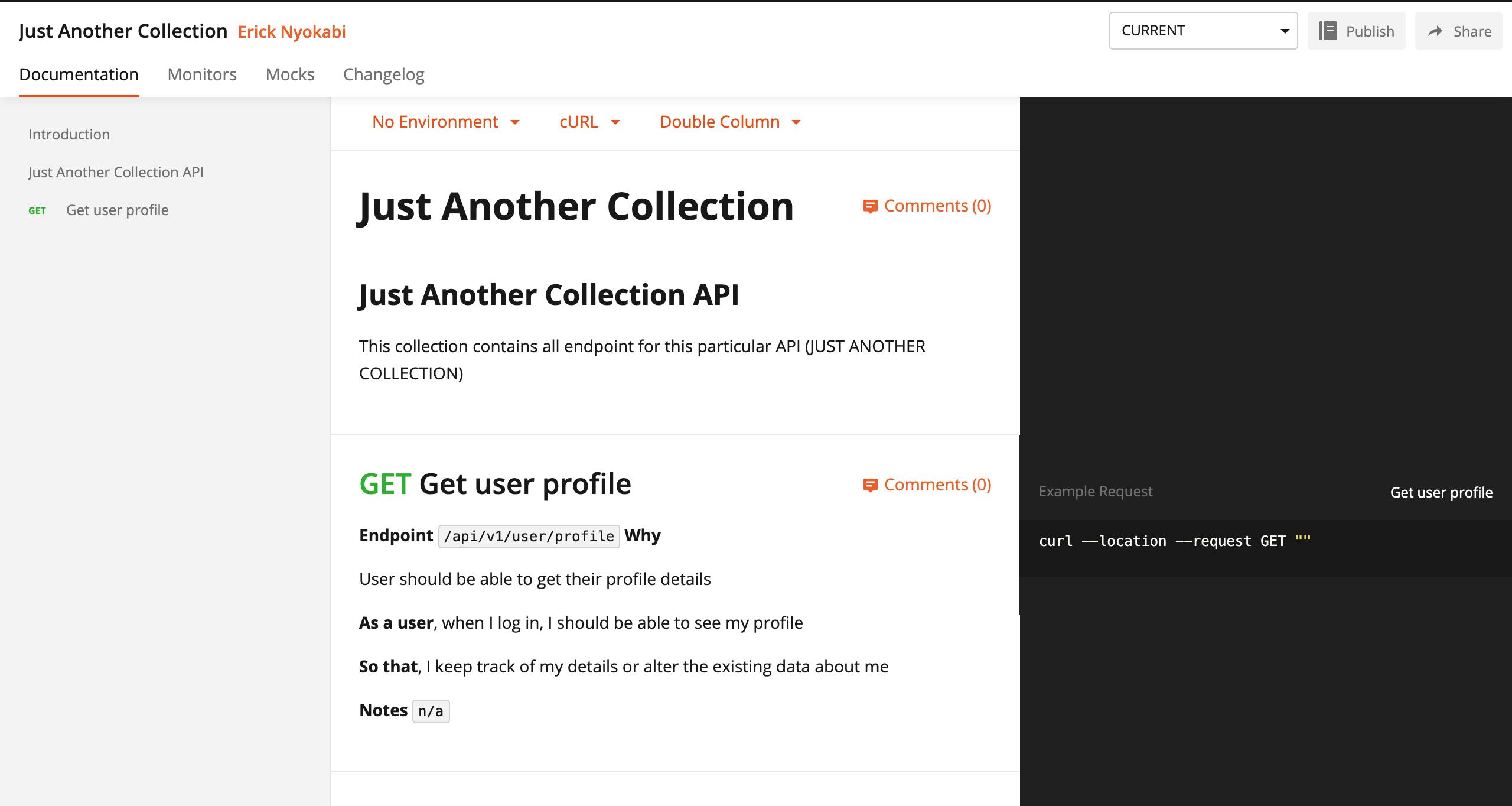
From there you can choose to publish your documentation or invite users to your workspace. If you click
Publish, you will be provided with a public link in which you can share with your friends to test it out. If you chooseShareyou will give access to all your collections even those that you might want to remain private.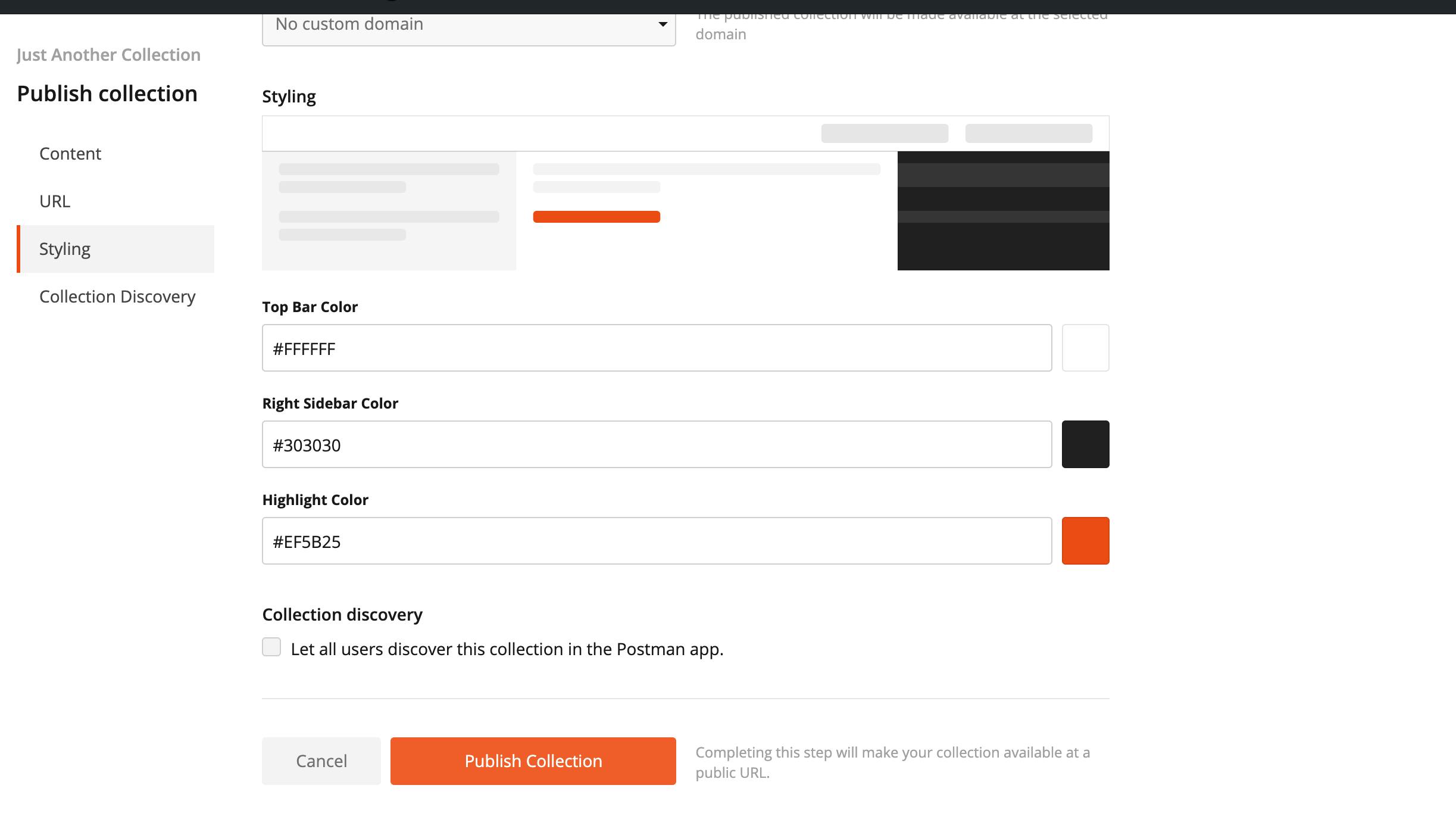
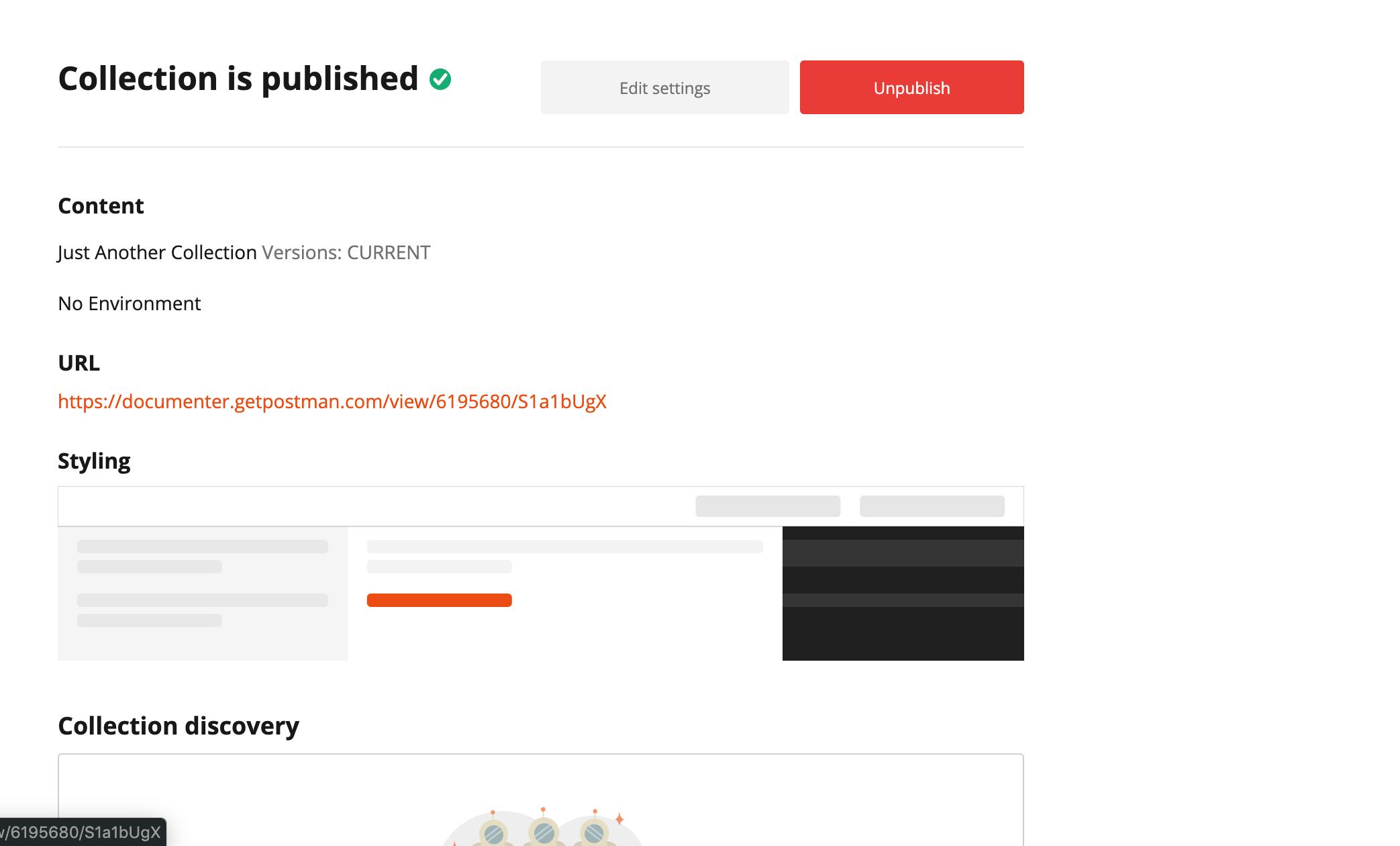 Here is the link to the collection we just created.
Here is the link to the collection we just created.
Postman is not the only tool that you can use to document your API, there is:
- Swagger
- Apiary
- ApiBlueprint and many more.
Summary
In this article, we were able to:
- See why documentation is important
- List tips on how you can document your code
- List tips on how you can document your API endpoints with tools like Postman.
Next
On the next article, I will focus on Github documentation from PR to commits.

